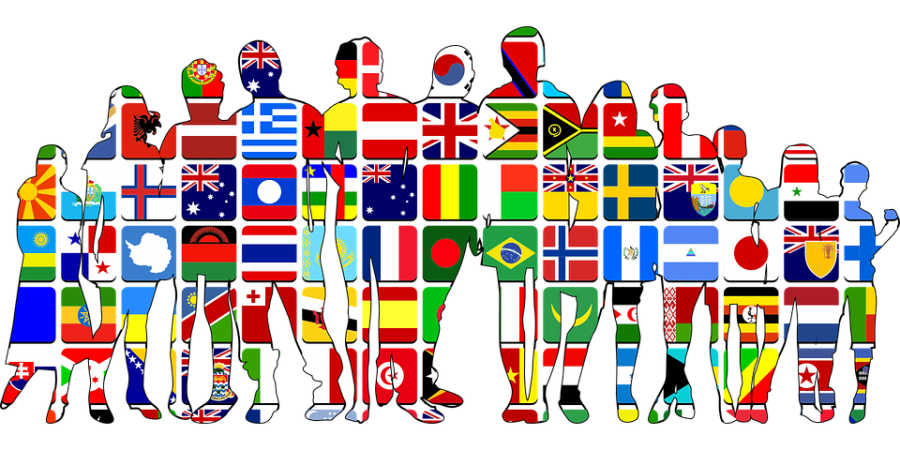The Complex Connection Between Cultural Values and Psychological Well-being

Culture is a vibrant tapestry that weaves together the beliefs, traditions, customs, and values of a society. These cultural values shape the way people think, behave, and interact with the world around them. However, an often overlooked aspect of cultural values is their profound influence on psychological well-being. If not properly understood, respected, and managed, these values have the potential to lead to psychological challenges.
If you don’t handle cultural values properly, they can eventually manifest as psychological disorders.
–Atif Jaseem
The Power of Cultural Values :
Cultural values are the foundation upon which societies are built. They provide a sense of identity, belonging, and purpose to individuals. These values serve as guiding principles, dictating how people make decisions, form relationships, and navigate life’s challenges. From concepts of family structure to notions of success and happiness, cultural values can exert a profound influence on individuals’ perceptions and behaviors.
“Culture is a way of coping with the world by defining it in detail.”
—by Malcolm Bradbury
The Intersection of Culture and Psychology :
Psychological well-being encompasses emotional, mental, and social aspects of an individual’s life. Culture and psychology are deeply intertwined, with cultural values shaping cognitive processes, emotional responses, and coping mechanisms. When cultural values align with an individual’s personal values, they can provide a strong sense of meaning and fulfillment. However, when there is a disconnect between one’s personal values and the prevailing cultural norms, it can lead to psychological distress.
The Potential for Conflict :
Cultural conflicts can arise when an individual’s personal beliefs and values clash with the dominant cultural norms. This conflict can be particularly pronounced in societies that are diverse or experiencing rapid social change. The pressure to conform to cultural expectations while suppressing one’s authentic self can create feelings of anxiety, depression, and identity crises.

The Transformation into Psychological Disorders :
If cultural values are not handled with sensitivity and respect, they can evolve into psychological disorders. For instance, the immense pressure to achieve certain cultural ideals such as academic success, career advancement, or conforming to societal beauty standards can lead to conditions like anxiety disorders, eating disorders, and depression. The stigma attached to mental health issues within certain cultures can further exacerbate the problem, preventing individuals from seeking the help they need.
Fostering Cultural Sensitivity and Psychological Resilience :
To mitigate the potential negative impact of cultural values on psychological well-being, it’s essential to foster cultural sensitivity and promote psychological resilience. This involves:
Education and Awareness: Raising awareness about the influence of cultural values on mental health is crucial. Providing education about the diverse ways in which culture can affect psychological well-being helps reduce stigma and encourages open conversations.
Cultivating Flexibility: Encouraging individuals to adopt a more flexible approach to cultural values can help reduce the negative impact of rigid expectations. This involves acknowledging that personal values may differ from cultural norms and finding a balance that respects both.
“A nation’s culture resides in the hearts and in the soul of its people”
—by Mahatma Gandhi
Seeking Support: Creating safe spaces for individuals to discuss their struggles and seek professional help is vital. This requires reducing the stigma associated with mental health issues within cultural contexts.
Promoting Inclusivity: Embracing diversity and inclusivity within cultural values can prevent feelings of alienation and marginalization. When cultural norms are more accepting of different ways of thinking and living, individuals are more likely to experience positive psychological outcomes.
In Conclusion :
Cultural values have an intricate relationship with psychological well-being. While they can provide a strong foundation for a fulfilling life, they can also become sources of distress if not managed with care. By fostering cultural sensitivity, promoting psychological resilience, and creating an environment that encourages open dialogue, we can ensure that cultural values contribute positively to the psychological well-being of individuals and communities alike.







Hi,
vitalreader.com
I was just browsing your website and I came up with a great plan to re-develop your website using the latest technology to generate additional revenue and beat your opponents. (vitalreader.com)
I’m an excellent web developer capable of almost anything you can come up with, and my costs are affordable for nearly everyone.
Please provide me with your email, and contact number to know more about your requirements.
Thanks in advance,
Nishant (Business Development Executive)